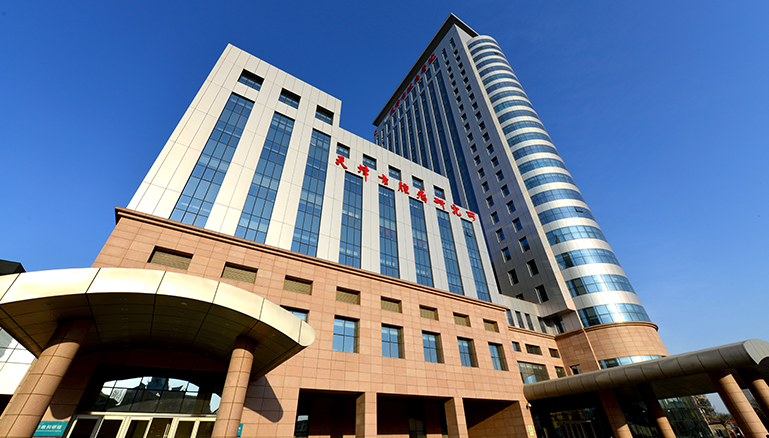
Tianjin Cancer Institute was established in 1977 by the late Chinese oncologist Professor Jin Xianzhai as the Cancer Prevention Research Laboratory of Tianjin People’s Hospital. When Tianjin People’s Hospital was renamed Tianjin Cancer Hospital in 1987, the Research Laboratory was established as an institute. In 1997, the Cancer Hospital and Research Institute were incorporated into Tianjin Medical University, and in 2007, the Institute became an independent legal entity. Jin Xianzhai, Zhou Yanchang, Zhang Tianze and Jin Jiarui have served successively as directors. Academician Hao Xishan is the current director, with Professor Ying Guoguang, Professor Niu Ruifang and Professor Li Hui acting as deputy directors.
Tianjin Cancer Institute has 12 departments, namely the Cancer Epidemiology & Biostatistics Laboratory, the Pathology Laboratory, the Biochemistry & Molecular Biology Laboratory, the Cancer Cell Biology Laboratory, the Immuno-Biotechnology Laboratory, the Gastrointestinal Tumor Biology Laboratory, the Pharmacology Laboratory, the Public Laboratory, the Tumor Molecular Diagnostic Center, the Tissue Bank, the Library and the Editorial Department.
Having focused on oncology basic research and clinical transformation application research for many years, the Institute lays emphasis on the prevention, early diagnosis and individualized clinical treatment of tumor diseases. Our main research directions include tumor epidemiology, tumor pathology and molecular typing, tumor genesis, tumor immunity and immunotherapy. The Institute has a series of achievements and has made progress in establishing a three-level prevention and control model for common malignant tumors in China, screening high-risk populations, discovering new tumor-related genes, exploring tumor development mechanisms, and the R&D of new theory related to tumor angiogenesis, new methods of tumor diagnosis, and new technology for tumor immunotherapy.
In the past 5 years, the Institute has been awarded 83 scientific research projects at and above the provincial and ministerial level, including 3 National Key Technology Research and Development Programs from the Ministry of Science and Technology of China and 55 programs supported by the National Natural Science Foundation of China. The Institute has also published a total of 314 SCI papers. Since the 12th Five-Year Plan was implemented, the Institute has been awarded a total of 6 scientific and technological achievement awards at and above provincial and ministerial level. In 2011 Academician Hao Xishan was awarded the Tianjin Science and Technology Major Achievement Prize.
With the aim of consolidating and improving the level of discipline development, the Institute has been continuously strengthening the construction of its talent teams. The Institute currently has a total of 179 professional technical personnel at various levels, including one academician from the Chinese Academy of Engineering, one foreign academician from the Chinese Academy of Engineering, and etc.
From 2013 the Institute has implemented a management system based on the existing principle investigators(PIs) which currently consists of 17 full-time PIs with their research teams. There are 24 doctoral tutors and 37 master’s tutors. In the past 5 years, the Institute has recruited a total of 62 doctoral students and 124 postgraduate students, as well as having 64 post-doctoral students and 86 graduated postgraduate students.